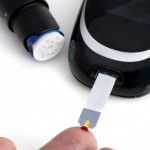Is The Promise of Resveratrol True?
Author: Dr. Stephen Chaney
 It was just a few years ago that resveratrol was the latest “miracle nutrient”. It was featured on Dr. Oz and on 60 Minutes. It was hot! Today you see dueling headlines. The headlines one week proclaim the benefits of resveratrol. Next week’s headlines say that it’s all hype. What’s a person to believe?
It was just a few years ago that resveratrol was the latest “miracle nutrient”. It was featured on Dr. Oz and on 60 Minutes. It was hot! Today you see dueling headlines. The headlines one week proclaim the benefits of resveratrol. Next week’s headlines say that it’s all hype. What’s a person to believe?
Let me take you behind the headlines to look at the actual studies and answer some important questions.
1) What do we actually know about the benefits of resveratrol?
2) Is the evidence for beneficial effects of resveratrol where it should be considering the number of clinical studies that have been published?
3) What additional studies need to be done before we can be sure that resveratrol is beneficial?
4) Should you wait until we are absolutely certain resveratrol is beneficial, before you start using it? This is perhaps the most important question of all.
To answer those questions, let’s examine the study behind one of the latest headlines, namely: “Resveratrol Improves Blood Sugar Control in Diabetics”. One of the promises of resveratrol has been that it might help diabetics and pre-diabetics who struggle with blood sugar control. However, this promise was based on animal studies. The study that generated the headlines in question was a meta-analysis of recently published human clinical trials in this area (Liu et al, Am. J. Clin. Nut., 2014, doi: 10.3945/ajcn.113.082024).
Does Resveratrol Improve Blood Sugar Control?
The meta-analysis included 11 published placebo controlled double blind clinical studies looking at the effects of resveratrol supplementation on fasting blood sugar levels, insulin levels, hemoglobin A1c (a measure of blood sugar control) and insulin resistance (a measure closely associated with type 2 diabetes).
A strength of this meta-analysis is the fact that it included 11 clinical studies. However, a weakness of this analysis is that these studies utilized a wide variety of resveratrol doses (10 mg/day to 1 gram/day), a wide variety of end points and both diabetic and non-diabetic patients. That means that there were only a few studies with common population groups, resveratrol doses, and end points.
The conclusions of the study (and the headlines you may have seen) were that:
• Resveratrol appeared to improve blood sugar control (based on improvements in fasting blood sugar levels, insulin levels, hemoglobin A1c and insulin resistance) in diabetics.
• No consistent effect of resveratrol on blood sugar control was seen in non-diabetics.
How Good Are These Studies?
While these studies are very promising, they are bot definitive. There were only 3 published clinical studies in diabetics. While all 3 of the studies showed a positive effect of resveratrol supplementation:
• The doses used were different in each study (ranging from 10 mg/day to 1 gram/day)
• Each study measured different end points (one measured blood glucose, insulin levels, hemoglobin A1c and insulin resistance, one measured blood glucose and hemoglobin A1c and the third measured insulin resistance).
As a research scientist I would like to see more studies done at comparable doses and measuring the same end points – we scientists always want more studies.
Similarly, there was not enough consistency in the studies with non-diabetics to draw a firm conclusion. (3 were with obese patients, 3 were with patients with cardiovascular disease, 1 was with patients with metabolic syndrome and 1 was with perfectly healthy subjects.)
If you really wanted to see if something like resveratrol helps non-diabetics with blood sugar control, you would want to start with people who are already experiencing some difficulties with blood sugar control (pre-diabetics or patients with metabolic syndrome) and follow them for a couple of years to see if resveratrol reduces the number of them who become diabetic.
Are The Headlines Just Hype?
 Does that mean that the blood sugar benefits of resveratrol are just hype? The answer is no. There is a difference between “very promising, but not yet definitive” and “hype”. We shouldn’t be surprised that human studies on the health benefits of resveratrol are not yet definitive. Science moves slowly. It often takes decades of scientific research before promising concepts are widely accepted by the scientific community.
Does that mean that the blood sugar benefits of resveratrol are just hype? The answer is no. There is a difference between “very promising, but not yet definitive” and “hype”. We shouldn’t be surprised that human studies on the health benefits of resveratrol are not yet definitive. Science moves slowly. It often takes decades of scientific research before promising concepts are widely accepted by the scientific community.
When a research area is as young as this one, we sometimes need to go beyond the clinical studies and look at the totality of evidence. In this case:
• In mice resveratrol exerts its beneficial effects by turning on a specific anti-aging gene called SIRT1 (Cell Metabolism, 15: 675-690, 2012). In humans, resveratrol appears to activate the same genetic pathways as in mice (Journal of Clinical Endocrinology & Metabolism, 96: 1409-1414, 2011).
• In obese mice resveratrol improves markers of blood sugar control (Nature, 444: 337-342, 2006). Published clinical studies in diabetic humans also show improvements in blood sugar control (Journal of Clinical Nutrition, 2014, doi: 10.3945/ajcn.113.082024).
So while more and better clinical studies are needed to be absolutely certain that resveratrol helps improve blood sugar control, the evidence supporting that effect is substantial.
What Should You Do?
The ONLY important question for each of you is probably: “Should I wait a decade or two until we are absolutely sure about the health benefits of resveratrol before I take a resveratrol supplement?” That question is ultimately yours to answer. It’s all about benefits and risk.
Benefits – In animal studies resveratrol clearly improves blood sugar control. The human clinical studies published to date are consistent with the animal studies.
Risk – Current data suggest that resveratrol appears to be safe, even at high doses. For example, one recent study indicated that up to 5 gm/day is safe (Cancer Epidemiology BioMarkers & Prevention, volume 16:1246-1262, 2007), but I wouldn’t personally recommend exceeding 100-200 mg/day.
The Bottom Line:
1) Don’t get too excited about the headlines suggesting that resveratrol might help improve blood sugar control in diabetics. The few human clinical studies that have been published to date are consistent with previous animal studies. That is very promising, but more studies are needed before we can be absolutely confident that resveratrol supplementation is beneficial for diabetics.
2) Similarly, don’t be discouraged by the headlines suggesting that resveratrol does not help with blood sugar control in non-diabetics. Those results are preliminary as well.
3) That doesn’t mean that the headlines are just hype. It takes decades to accumulate definitive proof that any kind of food or nutrient offers proven benefits, and the bulk of human clinical research on reveratrol has occurred in the last couple of years. We are exactly where we should expect to be at this point in time.
4) With something as promising as resveratrol, the real question becomes whether you can afford to wait a decade or two until you know whether the potential benefits have been definitely proven. That question is up to you. On the plus side, current data suggest that resveratrol is highly promising for blood sugar control. In addition, resveratrol appears to be safe, even at high doses, but I wouldn’t personally recommend exceeding 100-200 mg/day.
5) We already know that weight control, exercise and a healthy diet improve blood sugar control. You should think of resveratrol as something you may wish to add to a healthy lifestyle, not as a substitute for a healthy lifestyle.
6) If you are diabetic and decide to try a resveratrol supplement, be sure to work with your physician so they can modify your dose of insulin or blood sugar medication as necessary.
7) Finally, you may be asking whether resveratrol supplements are even necessary. Can’t you just get all the resveratrol you need from a glass or two of red wine? Stay tuned. I’ll have the answer to that question in a couple of weeks.
These statements have not been evaluated by the Food and Drug Administration. This information is not intended to diagnose, treat, cure or prevent any disease.
